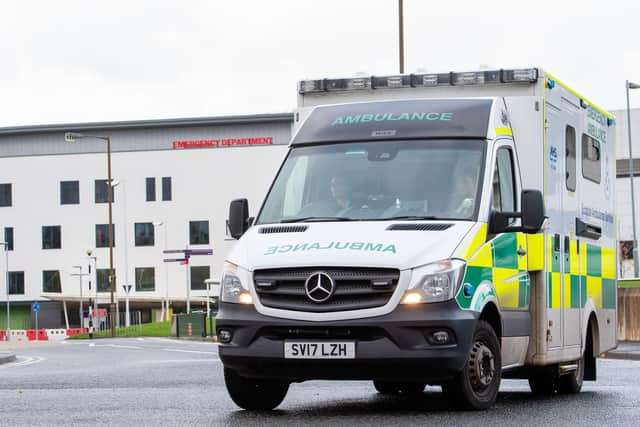Almost 5,000 patients spent half a day or more in A&E in Scotland in August
Monthly figures showed that 69.7 per cent of those attending A&E were seen, resulting in a subsequent admission, transfer or discharge within the target time of four hours.
This was down slightly from the 69.9 per cent recorded in July, making it the worst ever monthly performance, according to Public Health Scotland’s data.
Advertisement
Hide AdAdvertisement
Hide Ad

There were 4,967 patients who spent more than 12 hours in A&E – the highest monthly total on record.
The Scottish Government has set the target of 95 per cent of patients at A&E being admitted, transferred or discharged within four hours.
With performance against this target monitored both weekly and monthly, the latest figures showed in the week ending September 25 some two thirds of patients (66.3 per cent) were dealt with in the target time.
As the NHS approaches what ministers have already warned will be a challenging winter, health secretary Humza Yousaf urged people to “consider whether their condition is an emergency” before heading to A&E.
He said: “As we enter the winter period, it is crucial that people consider whether their condition is an emergency, such as a stroke, heart attack or major trauma, before going to A&E.
“Local GPs and pharmacies can be contacted during the day for non-critical care, NHS 24 is also available on 111 for non-emergencies.”
His comments came as figures showed that in August alone the four-hour target was missed for 41,112 patients.
Of the 135,532 people who went to A&E for help that month, 12,969 were there for eight hours or more.
Advertisement
Hide AdAdvertisement
Hide AdMeanwhile in the week ending September 25 emergency departments dealt with 25,900 patients, with the four-hour target missed for 8,722 of them.
That includes 2,864 patients who spent more than eight hours in A&E and 1,039 who were there for 12 hours or more.
The health secretary said: “A&E departments are working under significant pressure and, in common with healthcare systems across the rest of the UK and globally, the pandemic continues to affect services.”
However, he stated: “We are supporting health boards to improve performance through a number of measures aimed at reducing pressure on hospitals, including the national roll-out of our out-patient Antimicrobial Therapy service allowing patients to be treated at home or in the community – which has already saved 45,000 bed days.
“This is funded through our £50 million Unscheduled Care Collaborative programme which looks to drive down waiting times through the further development of Flow Navigation Centres in every board to ensure rapid access to a clinician and scheduled appointments, where possible.
Comments
Want to join the conversation? Please or to comment on this article.
